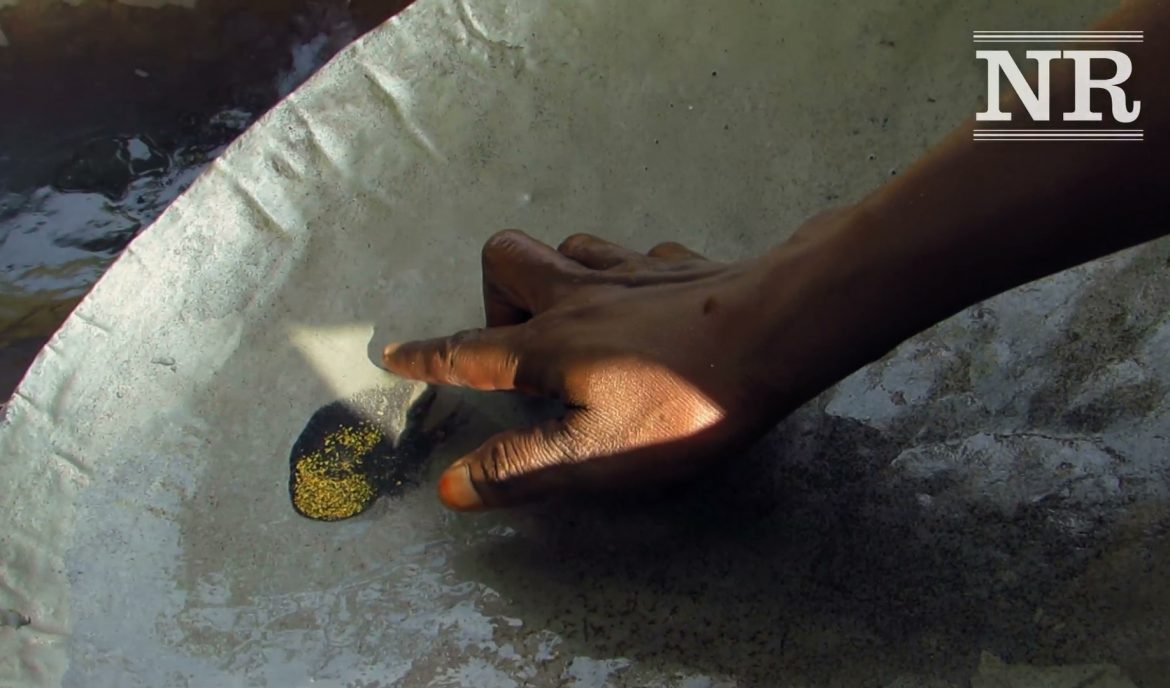At a bend in the Yabus River,
12-year-old Jawahir Babikir is on a mission. Bent over in the sun, she stands ankle deep in the cool, flowing water, panning for gold. Normally, Jawahir would be at the Doro Refugee Camp in South Sudan, attending school. But for today, she’s made the journey to Sudan’s Blue Nile, to earn some money. “I had class today but I couldn’t go,” she said. “I have to pan [for gold] so I can buy a pencil and a notebook to write with; tomorrow’s a school day.”
War and aerial bombardment have driven hundreds of thousands like Jawahir out of Blue Nile and into neighboring South Sudan and Ethiopia. The war between the rebel SPLA-North and government forces has made life nearly impossible for residents. The government’s bombing campaign has decimated their land, leaving many unable to plant food for themselves.
Faced with famine, many have fled to refugee camps in Ethiopia and South Sudan. Others have taken matters into their own hands, mining gold, trying and make ends meet.
Near Yabus, residents have turned a small patch of land next to the river into a community mine. The Yabus area is part of the ancient Benishangul region, an area claimed by the British and Ethiopian Empires in the 19th century due to its rich gold deposits.
Residents here began mining the area in 2013, one year after war began in Blue Nile state. Every day, nearly 200 people can be seen working in the mines. “You just carry some wood and live out here,” explained Abdallah Hassan Nimr, a miner. “It may succeed. It may not.”
DANGEROUS WORK
Some of the pits are deep – more than 60 feet – with little oxygen and almost no chance of escape if a problem arises. Residents say several people have died when the mines collapsed, though the exact number isn’t known.
And because the mines are completely out in the open, there is no place to take shelter if there is a bombing. “If [the bombing] comes now, just watch how people do gymnastics to escape,” jokes Nimr. “You see this hole?” he asks, pointing to the pit he’s working in, “It’s deep but there won’t be enough space.”
There are dozens of deep mines scattered around the area. Some are the size of a house, others are claustrophobic shafts with ladders built into the loose soil. At the bottom, barely visible, a single, bare-chested miner digs patiently, heading deeper into the earth.
After pulling dirt from the pits with buckets attached to long rope, miners bring it to the Yabus River. There it is sifted by women who spend all day in the sun, looking for just a few tiny flakes of the precious metal.
According to Balanal Binjol, a mine supervisor appointed by the SPLM-N administration, most people working in the mines have fled the war. “People here come from the refugee areas in Ethiopia [as well],” he explains. “There are also displaced people living in the [rebel] controlled areas, but they also struggle.”
GOLDEN LIFELINE
While it’s difficult to know how much gold has been taken from the mines, members of the community say the money has helped support them and their families since conflict erupted in Blue Nile three years ago. Residents can bring whatever gold they find to merchants, who wait nearby with scales ready.
The merchants smuggle the gold across the Ethiopian border, where it gets mixed in with the country’s own gold supply. For Yabus’ miners, the pay is less than the price of gold on the international market. But they are still happy for the income. Hawa Sabaab will make about $1.50 with the 10 milligrams she mined, and will use it to buy flour from the nearby market.
For the miners, the lure of the gold is even more enticing than the relative security of the refugee camps across the borders. Sabaab was living with her family in the Doro camp in South Sudan, receiving aid from the World Food Program. But she decided to make the walk back to the mine. In good weather, it takes about two days to make the trip on foot. During the rainy season, it can take five days.
Though she earns very little, she says she prefers it to the uncertainty of the camps. While her children waited, she collected her day’s earnings from a gold trader. “Here, at least we hustle with God’s earth and earn some money to buy food, coffee and okra.” After finishing her business with the trader, she picked up her children and headed for the market.





